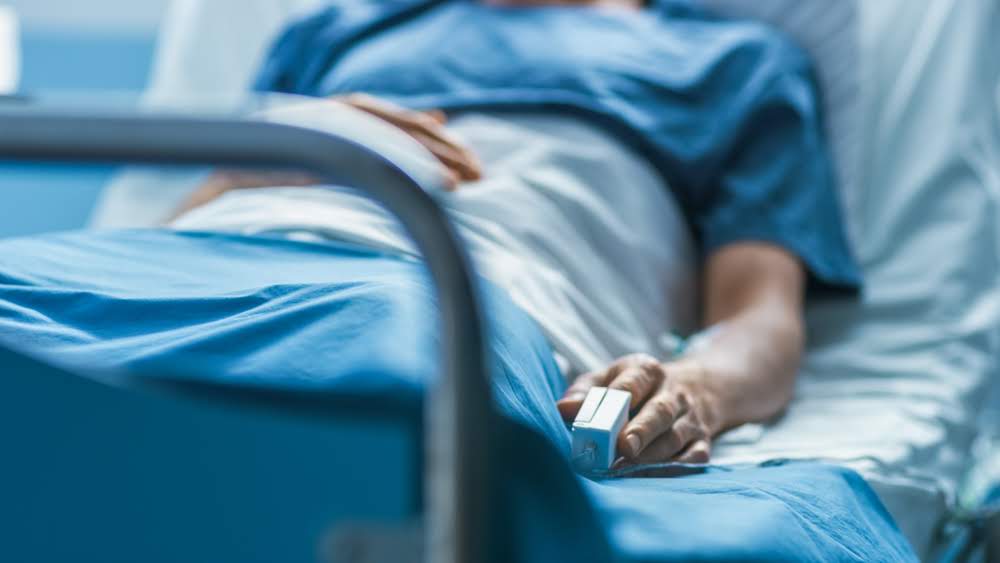Health journalist Mike George explores his own experiences of lengthy treatment in the NHS and how we can improve the patient outcomes
In these Covid times we’re seeing a lot more people than usual having to receive hospital treatment and care for a while, and in some cases for a long while. There are also likely to be an increasing number of patients discharged into the community with, often complicated, long Covid conditions. How well or badly these people fare healthwise will of course depend in large part on the quality of care they receive while hospitalised.
During 2020 I was in three hospitals for three and a half months in all with a complicated and rather hard to pin down medical condition. This was followed by a period of over 3 months when I was still not at all well, though I’m just starting to get better now. I can appreciate that the various doctors involved in trying to find out what was wrong with me and making me better used their professional expertise with diligence and care. Even so, when I was at last discharged I left with anaemia, pressure sores, mood swings, numbness and more.
 So how and why had my hospital stays made me so unwell? Luckily my wife had found some literature on how long hospital spells decondition patients. This overarching concept rang true with me. Basically, hospital-acquired deconditioning occurs because enforced bed rest, immobilization and sedentary behaviours can cause temporary or permanent and irreversible functional decline, especially among older people. This is most easily seen in muscle wasting and loss of physical strength, but it can impact pretty much on any aspect of bodily functioning and, of course on mental health.
So how and why had my hospital stays made me so unwell? Luckily my wife had found some literature on how long hospital spells decondition patients. This overarching concept rang true with me. Basically, hospital-acquired deconditioning occurs because enforced bed rest, immobilization and sedentary behaviours can cause temporary or permanent and irreversible functional decline, especially among older people. This is most easily seen in muscle wasting and loss of physical strength, but it can impact pretty much on any aspect of bodily functioning and, of course on mental health.
I recall that during my hospital stay I was always wanting to walk more, and no, this problem did not just arise as a result of Covid restrictions inside hospital premises and in the community. For example, before these Covid times the End Pyjama Paralysis campaign was pushing NHS England and other organisations to get patients out of hospital beds, into their own daytime clothes, and walking onwards. Deconditioning can also lead to obvious problems like an increased risk of falls, catching hospital bugs, and to the onset or worsening of confusion or delirium. For example, I had two falls in hospital which, unnervingly, led to even greater restrictions on my ability to move. One was caused by the effects of my reduced core strength (thanks to deconditioning), the other by an episode of dizziness caused by a temperature spike. Annoyingly the second one resulted in me falling onto a badly placed metal filing cabinet near my bed and cutting my arm open in the process, it also led to the onset of pain and numbness in most of my toes for some reason!
Another disabling hospital practice is how bed rails are used in practice by hospital staff. These rails can be impossible to adjust in any way if you are a patient in bed, they can also make it impossible to reach your phone or glass of water for example. Obviously, they have a crucial safety function, but I still question how they are used in practice. I also became all too aware of the importance to the patient of being able to access their own bits and pieces like toothpaste, watch, shaver or comb. I was disturbed by the fact that that these and other personal things had often been misplaced or moved, and I was impressed by just how important these supposedly little things were.
I was also surprised by how upsetting it was to have no consistent access to drinking water. I’d been told frequently that I had to drink more. For instance one doctor told me that I had postural hypotension; this is basically dizziness when sitting up or standing caused usually by medications and dehydration. But despite my repeated pleas to healthcare staff for bottles or cups of water that I could reach, I found frequently that I had use the call button to try to summon someone to get me some water. Only slightly less important in my view were the problems I came across in trying to keep my phone charged; regular phone calls to my wife were of fundamental importance. Other seemingly small things that turned out to be rather important include being able to clean your teeth properly and in a timely way, being able to get some exercise safely, having some sort of view to greenery, and even getting your hair and nails trimmed. Keeping your personhood intact may be tough for those in hospital for a while but I found that it’s vital for people’s physical and mental health. After all, leaving hospital in a deconditioned and depressed state is surely sub optimal, to say the least.
What else made me unwell? I was perfectly aware that I wasn’t in hospital to have fun but I found that the lack of stimulation worsened my mental state; I came to consider trips to the X-Ray department for example to be a treat. No televisions, dodgy radio reception, and only intermittent online access didn’t help, particularly as we weren’t allowed visitors, and in the main ward staffs weren’t happy about this either. Incidentally, I was struck by how isolated most older men were. The over 80s in particular seemed unhappy and resentful about not having their own mobile phones or about not being able to use them. These difficulties were thrown into stark relief by the joyous release felt by most of us inmates at having regular visits by volunteers. In my case, volunteers found personal possessions for me, helped to make sure that my devices were charged, and of course they provided much needed opportunities to chat – about anything really. This is not to diminish the input of nursing and other healthcare staff, but I found that in general they did not have the time to attend to all the many needs of us patients.
No account of the elongated time spent in hospital can be complete without the obligatory complaint about food. Sadly, after all these years of campaigns, the appointment of food tsars and the rest, one must still complain. For in my experience the outsourced food I was given was far too often pretty disgusting, often lukewarm, and not even that good for you. Like exercise and access to drinking water this basic requirement always seemed to be someone else’s responsibility, In this case I assume that the person or persons responsible were those who chose the catering firm and agreed the terms of the contract. Consequently I lost a lot of weight, despite being told often that I had to put weight on in order to protect and improve my health! An absurd situation, if it hadn’t been so serious.
Finally, it hardly needs saying that if we are discharged from hospital while still unwell, the chances of us being able to recover in an effective and timely manner are reduced drastically; but it seems that it does have to be said. Being very weak and unwell ill at discharge is very hard on patients, their families and carers, and on health and social care staff in the community. The importance of hospital care stretches well beyond hospital gates – can someone tell the hospital trusts about this please.
_________________________________________________________
references:
Evidence Briefing: Hospital Associated Deconditioning, Sarah Hanson, Andy Jones, Bridget Penhale, Kathleen Lane, University of East Anglia: see https://people.uea.ac.uk/en/publications/evidence-briefing-hospital-associated-deconditioning(e7b3e27a-9d6d-4c8e-b668-d2e0b21d3b6a).html Jason R. Falvey,
Rethinking Hospital-Associated Deconditioning: Proposed Paradigm Shift, Jason R. Falvey, Kathleen K. Mangione, Jennifer E. Stevens-Lapsley A, Physical Therapy, Volume 95, Issue 9: see https://academic.oup.com/ptj/article/95/9/1307/2686516
Deconditioning awareness, British Geriatrics Society, 2017
Hospital-Associated Deconditioning and Dysfunction, Helen M. Hoenig, Laurence Z Rubenstein, Journal of the American Geriatrics Society 39(2):220-2: see https://www.researchgate.net/publication/21163966_Hospital-Associated_Deconditioning_and_Dysfunction
Time to move: Get up, get dressed, keep moving, Dr Amit Arora, Blog, 2017: see https://www.england.nhs.uk/blog/amit-arora/
Covid-19 will be followed by a deconditioning pandemic, Muir Gray and William Bird, 2020, see: https://blogs.bmj.com/bmj/2020/06/15/covid-19-will-be-followed-by-a-deconditioning-pandemic/
Rehabilitation for hospital-associated deconditioning, Kortebein P, American Journal of Physical Medicine & Rehabilitation: January 2009: see https://journals.lww.com/ajpmr/Abstract/2009/01000/Rehabilitation_for_Hospital_Associated.10.aspx
End PJ Paralysis: the revolutionary movement helping frail older people, Amit Arora: see https://www.england.nhs.uk/2018/06/endpjparalysis-revolutionary-movement-helping-frail-older-people/
Dear Reader,
If you like our content please support our campaigning journalism to protect health care for all.
Our goal is to inform people, hold our politicians to account and help to build change through evidence based ideas.
Everyone should have access to comprehensive healthcare, but our NHS needs support. You can help us to continue to counter bad policy, battle neglect of the NHS and correct dangerous mis-infomation.
Supporters of the NHS are crucial in sustaining our health service and with your help we will be able to engage more people in securing its future.
Please donate to help support our campaigning NHS research and journalism.



Comments are closed.